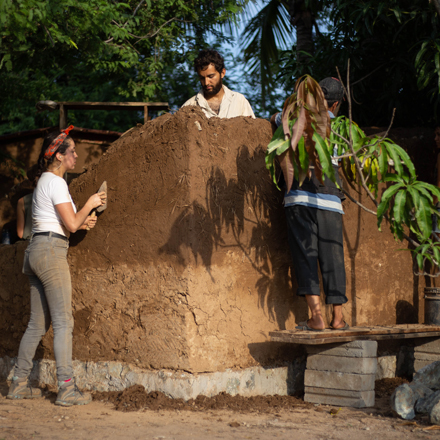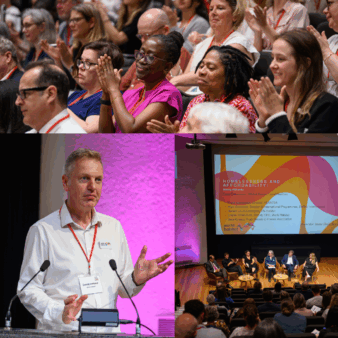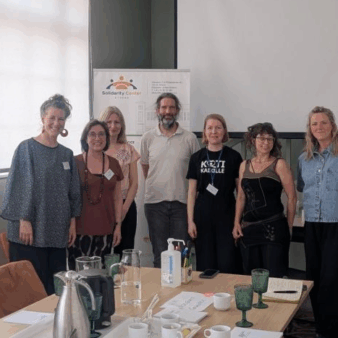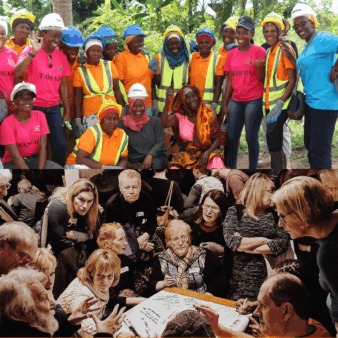
A project which has gone beyond the standard post-disaster approaches by using natural materials and vernacular techniques, combined with design that is participatory, inclusive, and diverse for tackling housing poverty amongst vulnerable groups has today – Thursday 16 December 2021 – been named a Bronze Award Winner in this year’s World Habitat Awards.
When an earthquake struck Santiago Niltepec in Oaxaca, Mexico, four in every five (80%) of the town’s buildings were destroyed. In the aftermath, some families found themselves excluded from the government’s reconstruction programmes, which offered either a small financial handout or low-quality standardised replacement homes that had a high negative environmental impact and disregarded the area’s cultural and architectural traditions.
Four families who did not receive any public subsidy trusted in Programa VACA A.C. (VACA) – a civil society organisation focused on sustainable community building projects in rural indigenous communities – to fund and design the reconstruction of their houses. The residents agreed to participate in a co-building project using local traditional techniques and predominantly natural, locally available materials.
The families, including women and children, collaborated with VACA’s design team to develop homes to suit their individual needs and preferences, through collaborative and inclusive methodologies. They then worked with VACA staff and a team of volunteers to construct the buildings.
The completed homes are durable, comfortable, sustainable, energy-efficient, and preserve the architectural heritage of the community, while the mutual-aid and self-build process ensures beneficiaries have the skills to maintain their homes in the future. And at 72sqm and an average cost of $157,500 MX ($8,000 USD), the houses are also larger and cheaper than the government-subsidised alternatives
One of the residents, Jonathan Fernández, said: “We have been doing well, if it wasn’t for the work that was done, we would have nowhere to be… now we have somewhere to sleep. Before we slept outside and now I feel safer sleeping inside with my family. The hardest thing was to build the whole wall, it took time… but I didn’t want to back out because I thought more about my son, who needed a place to stay or sleep…more than anything else to have a place to live and a place for my son to grow up.
“VACA brought us together, because without them we would not have made friends with each other… I never thought I would have made friends all over the village. I feel happy because in addition to giving us their friendship…[VACA] came with the mentality of helping us. Many people told us that the houses would not work, now they like them…and with the earthquake they see that everything is still fine, there is not a single crack… because it was very good construction.”
David Ireland, Chief Executive of World Habitat, said: “This project has built beautiful and safer houses and is producing them using natural resources – working with the local environment and not exploiting it. They have created better homes at a more affordable cost and improved safety for residents from future earthquakes.”
The World Habitat Awards Advisory Group judging panel said: “They are trying to deal with housing poverty, loss of sustainable traditional techniques, the culture of handouts and gender discrimination in reconstruction. It is clear how much quicker this kind of bottom-up approach to disaster response can be, compared to the top-down government approaches we often see.”
The World Habitat Awards are organised by World Habitat in partnership with UN-Habitat.




Join the discussion